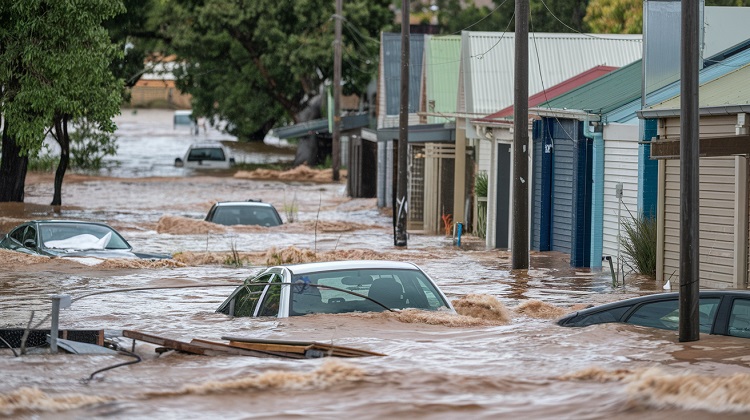The US and Britain carried out a series of air strikes on military locations belonging to Iran-backed Houthis in Yemen in response to the group’s ongoing attacks in the Red Sea.
“Today, at my direction, U.S. military forces—together with the United Kingdom and with support from Australia, Bahrain, Canada, and the Netherlands—successfully conducted strikes against a number of targets in Yemen used by Houthi rebels to endanger freedom of navigation in one of the world’s most vital waterways,” President Biden said in a statement.
US and UK Launch Bold Strikes Against Iran-backed Houthis
The recent launch of bold strikes by the United States and the United Kingdom against the Iran-backed Houthi rebels in Yemen has captured the world’s attention. As tensions continue to escalate in the region, these military actions aim to curb further aggression and safeguard vital international shipping routes.
With the Houthi rebels carrying out indiscriminate attacks on commercial vessels, causing significant global repercussions, the international community is closely monitoring the situation. The involvement of Iran in supporting the Houthis raises concerns about regional stability and the potential for wider conflict.
However, as the situation unfolds, there is still much to be revealed about the motivations and potential consequences of these strikes. It is crucial to consider the risks and concerns associated with direct intervention in Yemen, as well as the collaborative efforts of various nations in addressing the issue. The impact on global shipping and the implications for future resolutions also add complexity to the unfolding narrative.
Key Takeaways
- Houthis have been carrying out attacks on commercial vessels, targeting not only ships connected to Israel but also those from various countries, which has had a global impact beyond the US and Israel.
- The US and UK have responded to these attacks by launching strikes against the Iran-backed Houthis in order to deter future attacks and directly address the threat posed by the group.
- Iran’s support for the Houthis in Yemen has raised concerns among international actors, and the strikes against the Houthis can be seen as indirectly targeting Iran’s influence in the region.
- The situation is still developing, and more information may come to light, so it is important to stay tuned for further updates on the situation.
Background: Houthi Attacks and Targets
The Houthi attacks, which began after the war in Gaza, have been primarily targeted at ships connected to Israel, despite boasting about attacking both Israel and the United States to bolster their status among their followers.
Houthi commanders have declared their intention to target ships linked to Israel, but it is important to note that many of the commercial vessels attacked had no ties to Israel. In fact, the US Navy Central Command reported that 55 nations with direct connections to the attacked ships were affected.
Vice Adm. Bradley Cooper made this assessment, highlighting that the attacks were not limited to ships tied to Israel. Instead, commercial vessels from various countries were targeted, showing that the impact of these attacks extends beyond just the US and Israel.
US and UK Strikes in Response
In response to the attacks on commercial vessels, the United States and the United Kingdom conducted strikes against the Iran-backed Houthis. These strikes were carried out as a direct response to the threat posed by the Houthis and aimed to deter future attacks.
The collaboration between the US and UK in these military actions highlights the seriousness of the situation. By targeting the Iran-backed Houthis, the strikes indirectly address Iran’s influence in the region.
It is important to note that these strikes were not taken lightly, as the US has been cautious about taking direct action in Yemen to avoid upsetting the truce with Saudi Arabia. The White House and Pentagon officials have made it clear that they do not seek conflict with the Houthis, but they have issued warnings regarding the consequences of their actions.
Iran’s Role in Supporting the Houthis
Following the recent strikes against the Iran-backed Houthis, it is crucial to examine the extent of Iran’s role in supporting this Yemeni rebel group. Iran’s support for the Houthis is well-documented and has raised concerns among international actors.
The Houthis are backed by Iran, and this support has enhanced their capabilities and provided them with the necessary resources to continue their fight in Yemen. Iran’s involvement in Yemen has also been seen as a way to extend its influence in the region and challenge its adversaries, particularly Saudi Arabia.
The recent strikes against the Houthis can be seen as indirectly targeting Iran’s support for the rebel group and attempting to curb its influence in the region. However, the full extent of Iran’s role in supporting the Houthis is still a subject of ongoing investigation.
Ongoing Updates on the Situation
As new details continue to emerge, the situation regarding the strikes against the Iran-backed Houthis in Yemen remains fluid and subject to ongoing updates. The story is still developing, and it is expected that more information may come to light in the coming days. It is essential to keep track of the evolving situation to fully understand the implications of the strikes and their potential impact on regional dynamics.
Concerns and Risks of Direct Action in Yemen
Direct action in Yemen against the Iran-backed Houthis raises significant concerns and risks for international actors involved in the conflict. The United States, in particular, has been cautious about taking direct action in Yemen to avoid upsetting the delicate truce with Saudi Arabia. There is also a risk of the conflict in Yemen expanding into the region, particularly in Gaza.
While the US has conducted airstrikes in Yemen in the past, White House and Pentagon officials have made it clear that they do not seek a broader conflict with the Houthis. Instead, the recent strikes carried out by the US and UK were intended to deter future attacks on commercial vessels.
However, the situation remains fluid, and further updates on the concerns and risks of direct action in Yemen are expected as the conflict unfolds.
International Collaboration in Military Actions
International collaboration in military actions is crucial for effectively addressing and countering the threat posed by the Iran-backed Houthis in Yemen. The recent strikes conducted by the US and UK against the Houthis demonstrate the importance of coordinated efforts in confronting this destabilizing force in the region.
By working together, these nations can pool their resources, intelligence, and capabilities to enhance the effectiveness of their military actions. Such collaboration allows for a more comprehensive approach that targets the Houthis and their support networks, including Iran, which plays a significant role in backing the group.
Impact of the Attacks on Global Shipping
The attacks carried out by the Iran-backed Houthis have had a significant impact on global shipping. These attacks have disrupted maritime trade routes and posed a threat to commercial vessels from various countries.
The targeting of ships connected to Israel was initially declared by the Houthis, but their attacks extended beyond these vessels, affecting ships with no ties to Israel. The US Navy Central Command reported that 55 nations with direct connections to the attacked ships were affected by these acts of aggression.
As a result, the global shipping industry has been forced to adapt to increased security measures and heightened risks in these volatile waters. The recent strikes launched by the US and UK against the Houthis aim to deter future attacks and safeguard global shipping routes from further disruption.
Future Implications and Possible Resolutions
The ongoing aggression by the Iran-backed Houthis and its disruptive impact on global shipping routes have raised concerns and highlighted the need for future implications and possible resolutions to address this escalating threat.
The recent strikes by the US and UK against the Houthis were aimed at deterring future attacks on commercial vessels. However, it is important to consider the long-term implications of such actions.
Firstly, there is a risk of further escalation and retaliation from the Houthis or their supporters, potentially leading to a wider regional conflict. Secondly, the international community must explore diplomatic solutions to address the root causes of the conflict in Yemen and find a peaceful resolution. This may involve engaging with Iran to encourage them to play a constructive role in ending the support for the Houthis.
Ultimately, a comprehensive and coordinated approach involving regional and international stakeholders will be necessary to achieve lasting peace and stability in Yemen and ensure the safety of global shipping routes.
Frequently Asked Questions
How Have the Attacks on Commercial Vessels Impacted Global Shipping Routes?
The attacks on commercial vessels have disrupted global shipping routes, causing economic and logistical challenges. The targeting of ships connected to Israel initially raised concerns, but the attacks expanded to vessels from various countries, impacting trade and maritime security.
Are There Any Other Countries Besides the US and UK That Have Taken Action Against the Houthis?
There have been reports of other countries taking action against the Houthis, although details are still emerging. It is important to note that the involvement of additional countries has not been confirmed at this time.
What Are the Potential Future Implications of These Strikes on the Situation in Yemen?
The potential future implications of the strikes on the situation in Yemen include increased tensions between Iran and the US/UK, potential escalation of the conflict, impact on humanitarian aid efforts, and a reevaluation of international involvement in the region.
Has There Been Any Response or Reaction From Other International Actors Regarding the US and UK Strikes Against the Houthis?
Various international actors have expressed concern and reacted to the US and UK strikes against the Houthis. Calls for de-escalation and diplomatic solutions have been made, while some have criticized the strikes for potentially exacerbating the situation in Yemen.
Albion News is a great place to find informative, up-to-date news articles. We provide a wide range of unique articles that offer an interesting perspective on current events from around the world and from various different sources. You can easily search for the topics that matter most to you and explore in-depth pieces that provide insight into the issues and important debates occurring today. Albion News helps you stay informed with carefully researched and credible stories!







